Perhaps you’re trying to get ready for your day, but you don’t have any coffee in the house — except for an old, old bag of coffee grounds in the back of your pantry. You wouldn’t want to make yourself sick, but you really want that cup of coffee. Do coffee grounds go bad? Shall you take a risk and go for it anyway?
How long does coffee stay fresh?
You might be wondering, “Does coffee expire?” The first thing to get out of the way is the worst-case scenario: coffee does not go off like milk or meat does when consuming an expired product can make you sick. Expired coffee won’t make you sick, but the bitter or bland taste will likely disappoint you, even if you are the most forgiving coffee drinker. The worst when the coffee has gone bad is decreased flavor, aroma, and delicious taste.
That said, coffee grounds usually have an expiration date. While checking the “Best before” date on the packaging is a good start, it will not tell the whole story of your coffee grounds. Large ground coffee producers give a generous amount of time for coffee shelf life — often up to two years! Even if your coffee is well before the expiration date, the flavor may still be disappointing when you prepare your coffee.
On the other hand, specialty coffee roasters will often have only roast dates on the packages, which is a good indicator of the freshness of your coffee.
Freshly roasted coffee beans have flavor compounds that start changing when the coffee ages. While many factors (such as coffee variety, environmental conditions, processing, storage, packaging, preparation, and serving) influence the sensory characteristics of coffee, the freshness of roasted coffee impacts the flavor and, ultimately, the enjoyment of drinking it.
I buy my whole beans in small portions from a local coffee shop that roasts on the premises, so I always know they are fresh. However, if you buy ground coffee at the grocery store, you will not know when the coffee was roasted or the beans were ground.
To prepare the best coffee, you should use freshly ground beans. The grinding process depends on your equipment. If you have your own grinder, only grind the portion you plan to brew, then keep the remaining beans in the original packaging or an airtight container. After all, grinding coffee does not take long, but doing it right before brewing will allow you to enjoy a much tastier cup.
If you do not have a coffee grinder, you can use one at the store or ask your barista to grind your beans for you. Be sure to know the best grind size for your preferred brewing method. If you are not sure, ask your local barista.
How long coffee beans stay fresh can definitely be influenced by whether the package is opened. Once opened, whole beans will remain fresh for 3-4 weeks. However, opened ground coffee may go bad 1 week to 14 days after opening. Generally, reputable coffee shops will not sell coffee more than a month from the roasting date.
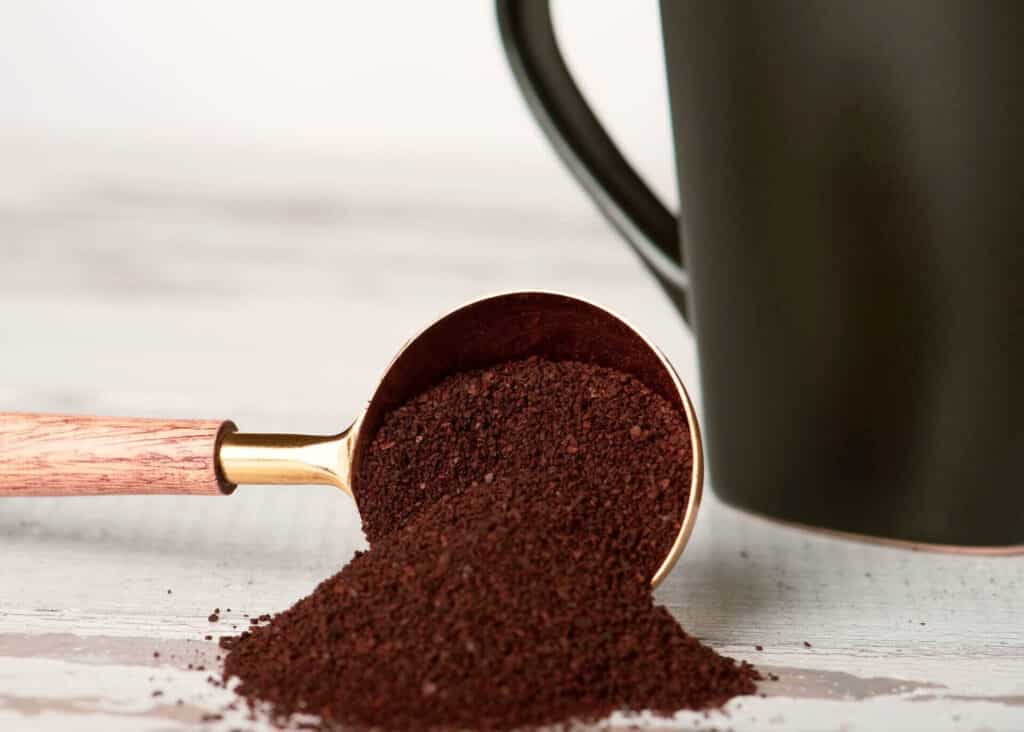
Does packaging affect coffee freshness?
Proper coffee packaging, including coffee cans, nitrogen flushing, vacuum-sealed jars, valve-sealed bags, and even plain paper bags, help maintain the coffee’s freshness.
Vacuum-sealed bags or containers keep out moisture and oxygen. Even better than vacuum sealing, nitrogen flushing helps remove all oxygen, keeping beans or ground coffee fresher — and thus more flavorful — longer. If nitrogen flushing has been used, you may notice a little valve on the packaging of your coffee. These are one-way valves, and they effectively retain freshness, keeping out oxygen while allowing the release of carbon dioxide. The valve helps extend the shelf life of ground coffee and preserve the flavors.
Storing coffee in the original packaging is fine as long as the bag has a good seal. However, if the packaging gets torn or damaged or doesn’t close well, you can store the coffee in an airtight container. Minimizing your coffee’s exposure to air will help ensure the freshness of your brew and provide the flavorful taste you expect from your favorite roast.
How to store your coffee?
When I was still buying my coffee from a supermarket, I discovered a half-full, unsealed bag of coffee while cleaning out my freezer. Back then, it seemed like a logical choice since freezing food keeps it fresh longer.
At some point, I discovered this was not the case with coffee. Whether you have whole beans or pre-ground coffee, coffee kept in the freezer will degrade faster than storing it in a sealed bag or an airtight container at room temperature. The refrigerator is even worse.
Humidity and moisture are the worst part of keeping your coffee in the fridge. Fridges are humid environments. Every time you open a bag of coffee beans stored in the freezer or fridge, they defrost a little, creating condensation. The condensation speeds the breakdown of the precious beans. When the moisture evaporates, the natural oils and compounds will break down.
You should keep your ground coffee at room temperature in your pantry because moisture and oxygen are the two biggest enemies of fresh-tasting coffee. The light can also degrade aromatic coffee compounds.
Keeping your coffee dry maintains the integrity of the beans or coffee grounds. If you must put your coffee in the freezer, only freeze vacuum-sealed bags. Freezing coffee can prolong the life of your coffee beans or grounds, but they may not taste as good.
Buying a smaller package of coffee and storing it properly is an easy way to ensure a fresh cup of coffee every morning.
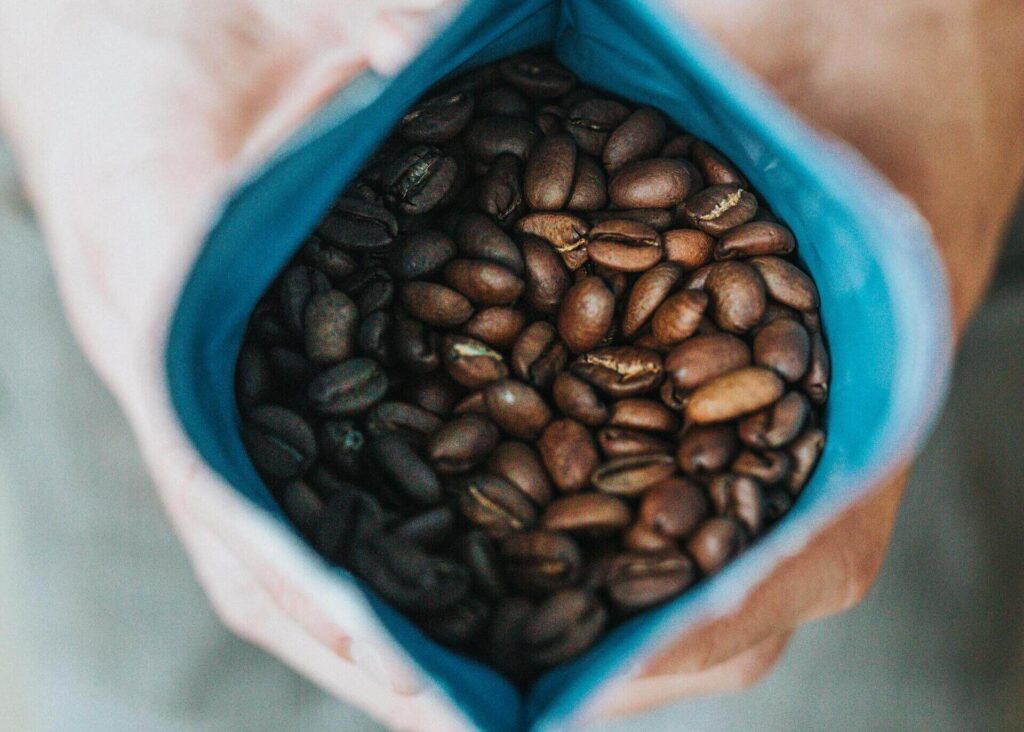
How to tell if your coffee is fresh?
While you may try different methods for determining fresh coffee flavor, it is not complex. You can determine if coffee is fresh by first smelling it, then tasting it. Over time, both coffee beans and coffee grounds gradually lose their pungency.
Even if you do not buy whole-bean coffee, there are ways to keep your ground coffee fresh, resulting in delicious brewed coffee. Ideally, knowing your roasting date and ensuring your coffee is stored correctly is just a matter.
If you are not sure when the coffee was roasted, smell it. It may seem obvious, but if your coffee grounds have lost that heavenly aroma, you know they are on the way to becoming stale.
For coffee enthusiasts, looking for the bloom when making pour-over coffee is a more reliable way to know if your coffee is fresh. Piquing the water over your ground coffee creates a lovely, fragrant foam with shiny bubbles. If your brewed coffee blooms, you know it is fresh.
Of course, ultimately, it comes down to taste. The flavors will be robust and satisfying when the coffee is at its peak. If your flavor disappoints, you can determine if the problem is stale coffee or if there is a problem with the water-to-coffee ratio. Sometimes adjusting the proportions will do the trick. If these tips do not help, it may be that your grounds are not fresh.
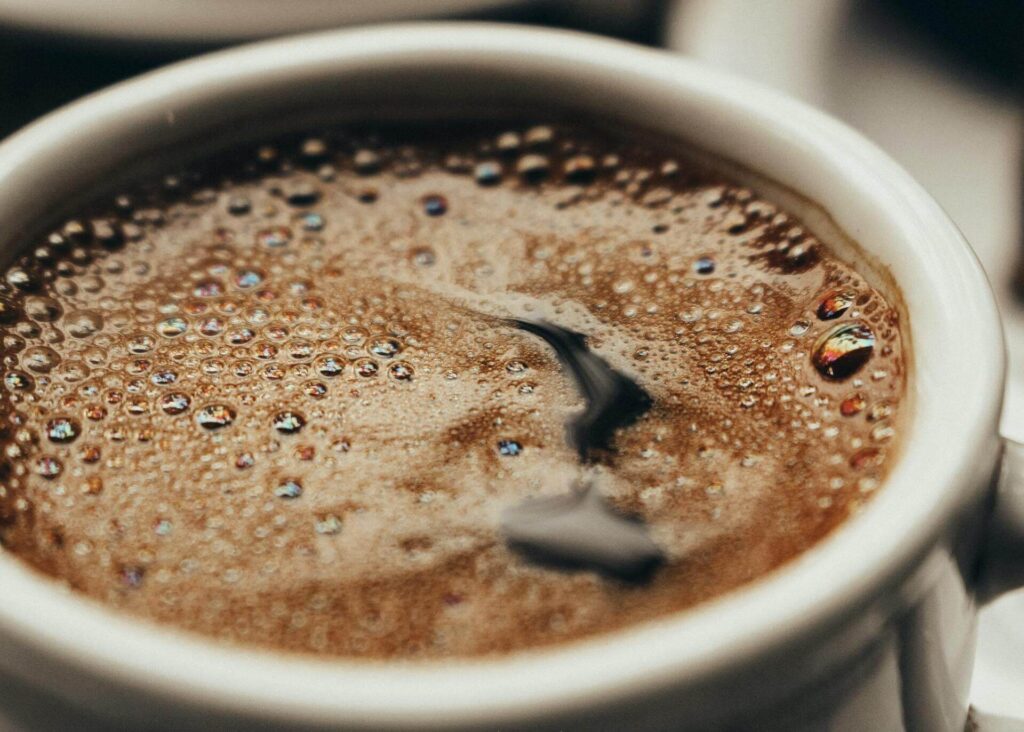
Does ground coffee go bad?
The convenience of pre-ground coffee is excellent on groggy mornings. It is quick and easy to get a boost when your coffee is ready to brew.
While the convenience is nice, it comes at a cost. You have to accept that you won’t get a peak quality experience from your morning cup or your afternoon pick-me-up.
Because the ground coffee is already processed, it won’t have the same rich aroma you get from freshly ground coffee in a coffee shop.
If you’re not used to high-quality coffee, you might be unable to tell if your ground coffee has gone bad. However, letting the coffee lose its best properties is easier than you think. Even when you have fresh grounds, you want to use them quickly because exposure to oxygen can make coffee lose quality.
Though ground coffee will not “go bad” or spoil when stored properly, it turns stale and loses its flavor over time. If you value taste over budget, assess the roast quality you are about to brew.
It’s time to put your nose to work. Does the ground coffee emit an aroma that invites you to brew, or has it gone flat and soulless? If the aroma is flat, the flavor will suffer, too. It won’t hurt you, but it won’t be as enjoyable.
If the beans or grounds get wet, toss them. The moisture will destroy the coffee oils. Damp coffee may even grow mold or mildew, which could make you sick.
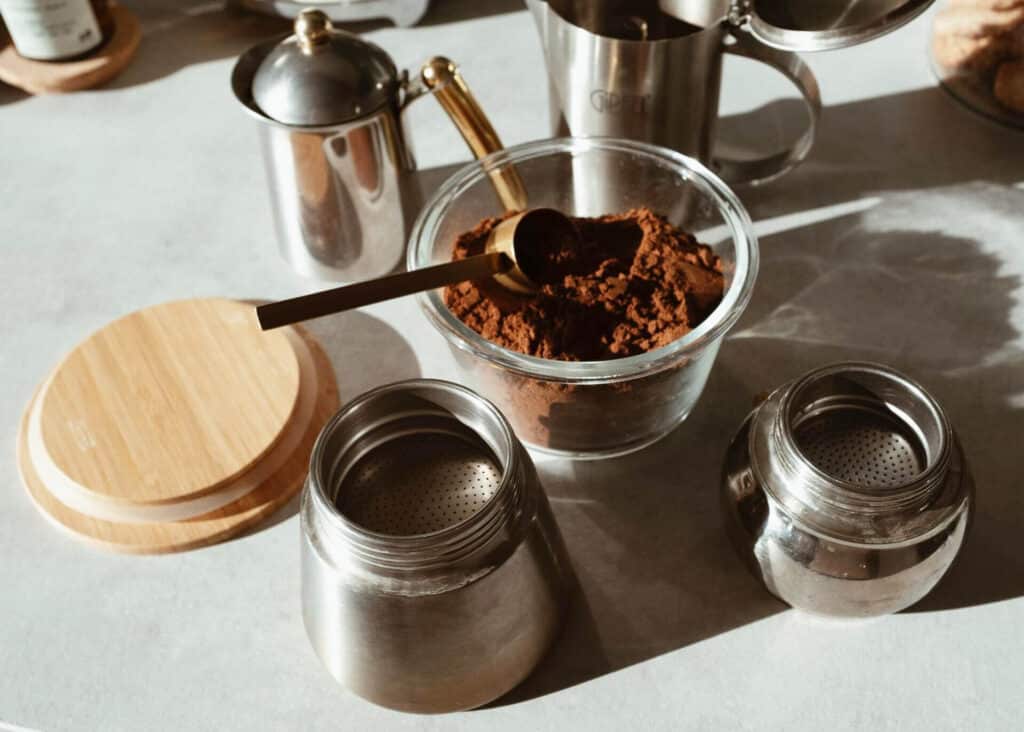
Do old coffee beans lose caffeine?
Let’s be honest: coffee is nothing more than an energizing substance for many people. They may load it down with sugar and cream — or hold their nose and gulp!
While the taste and aroma of coffee beans diminish over time, the level of caffeine generally remains intact, as caffeine is more stable than other compounds found in coffee. What degrades is the coffee oils that provide delicious flavor.
Think about instant coffee. Whether you like its taste or not, it has been stable for years and years.
This is good news for those who drink coffee solely for the boost. When you discover that you are out of your favorite roast but find an old jar of coffee in the pantry, you may not enjoy its flavor, but at least it should keep you awake.
Can coffee be too fresh?
Unless you are brewing coffee right off the roaster, too fresh coffee is unlikely to be a problem for you. However, if you bought a bag of freshly roasted beans, it is best to wait a few days before grinding and brewing them.
The heat of roasting breaks down sugars and amino acids into carbon dioxide. Letting any buildup of carbon dioxide dissipate before you brew coffee is more likely to get you a tasty cup of coffee. Fortunately, it doesn’t take too long, although it can be more of an issue with lighter roasts.
For those who want an excellent cup of coffee, the timing matters. If you love dark-roasted coffee, you can enjoy the best cup a few days after roasting. However, for the fans of lighter roasts, it is better to wait 5-10 days before brewing the coffee.
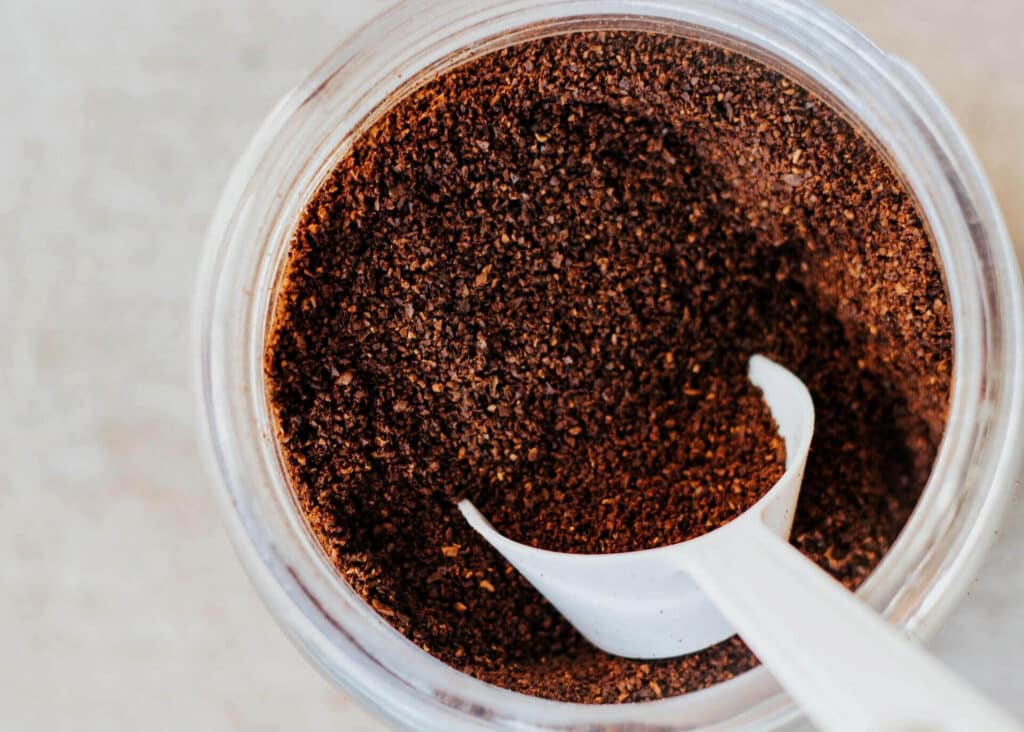
Is it OK to drink expired coffee?
What happens if you realize your coffee is past the “Best before” date? If moisture has gotten inside, you’ll need to dispose of them immediately, as coffee beans can get moldy when wet. However, if you properly store coffee grounds or beans in a cool, dry place, they will be safe to consume.
While drinking coffee that has passed the expiration date may be safe, why would you want to?
One of the most common reasons people end up with stale coffee is that they purchased too much of it at a time. The big-box stores may offer massive discounts on 10-pound bags, but it is not easy to keep that much coffee fresh, even with proper storage.
Serious coffee drinkers know that coffee does not last forever, and nothing is more disappointing than stale coffee. Knowing how to buy and store ground coffee or whole coffee beans will distinguish between a delectable cup of coffee and a rancid disappointment.
Whether you buy a $25 bag of beans from a specialty coffee shop or a $10 bag of pre-ground coffee at the supermarket, you want to protect your investment and enjoy it till the last cup.
Suppose you must store coffee for a long time and are stocking your pantry as if preparing for a disaster. In that case, instant coffee has a longer shelf life than ground coffee. While instant coffee does not offer the flavor that coffee aficionados prefer, it’s probably better than nothing under that circumstance.
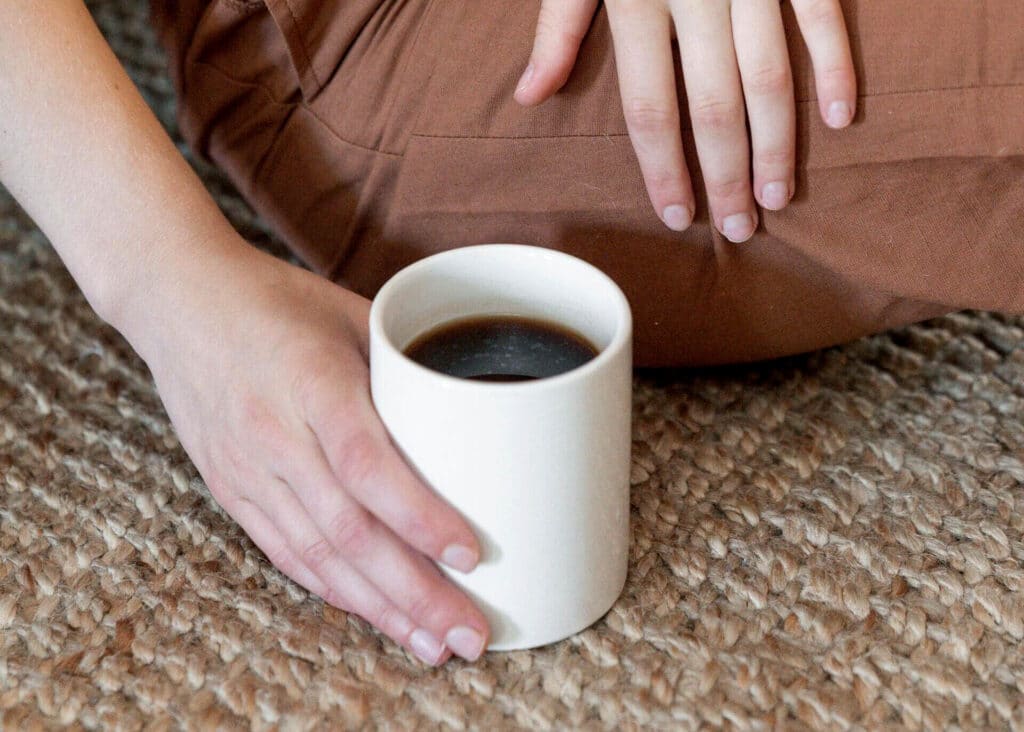
How to get the most out of your brewed coffee?
While it costs more to buy freshly roasted beans, it is the best way to ensure a quality cup of coffee. To maintain freshness, buy as much coffee as you plan to drink within the next couple of weeks.
Let’s say you’ve recently bought roasted coffee, ground your beans, and are ready to brew. Unfortunately, there is one more way to ruin even the most perfect grounds: heat. You want to brew your coffee with water below boiling temperature rather than water that is too hot.
Also, try to drink your coffee before it gets cold. Some folks will heat up cold coffee in the microwave, likely resulting in an unpleasant bitter taste. Instead, you’re better off putting cold coffee in an ice cube tray in the freezer to prepare iced coffee at some point.
Don’t despair if your ground coffee does go bad. There are some excellent household uses for old coffee grounds. For example, they can be mounded in areas in your garden where you’d like to repel bugs or small amounts can be stirred into the soil of plant seedlings to give them a nitrogen boost. Dry coffee grounds can even be placed in a bowl in the fridge to deodorize it.
Ensuring your coffee doesn’t go bad can take time and resources. However, once you know the basics, you can enjoy every cup of your coffee to the fullest.
